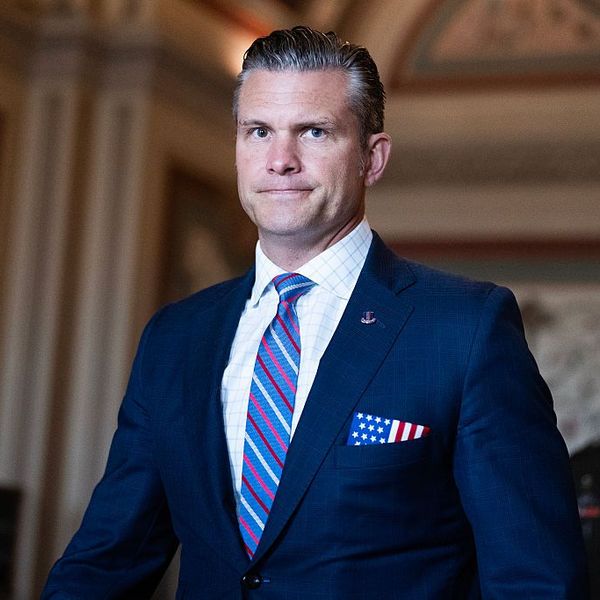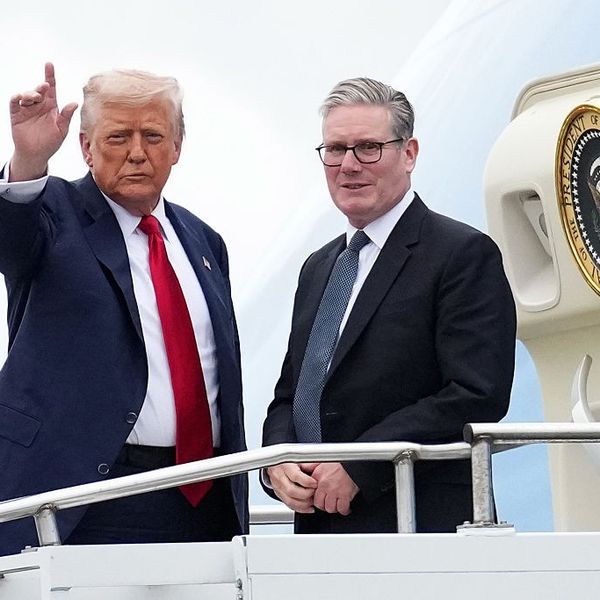Pentagon Puts Afghan Drug-Traffickers on Hitlist
Fifty Afghans who are suspected of drug trafficking and have ties with the Taliban
have been placed on a Pentagon target list to be captured or killed,
according to a congressional study to be released this week, the New York Times reported yesterday .
The move, reflecting a shift in US counter-narcotics strategy in Afghanistan, is certain to provoke controversy.
US
commanders, who described it an essential part of a plan to disrupt the
flow of drug money helping to finance the Taliban insurgency, are
reported to have told Congress they are convinced that the policy is
legal under the military's rules of engagement and international law.
However,
targeting individuals in a deliberate assassination policy is regarded
by many Nato countries, and by many lawyers and military advisers in
Britain, as unlawful.
"This was a hard sell in Nato," said
retired General John Craddock, Nato's supreme allied commander until he
retired in July, the New York Times reported.
In
interviews with the Senate foreign relations committee, two US generals
serving in Afghanistan said major traffickers with known links to the
insurgency had been put on the "joint integrated prioritised target
list". That means they have been given the same target status as
insurgent leaders, and can be captured or killed at any time.
Currently, they said, there were about 50 major traffickers who contribute money to the Taliban on the list.
"We
have a list of 367 'kill or capture' targets, including 50 nexus
targets who link drugs and the insurgency," one of the generals told
the committee staff.
The question of how to deal with the opium
poppy harvest and drug trade in Afghanistan, the source of 90% of the
world's heroin, has been a highly controversial issue for years.
European allies, and Britain in particular, opposed America's initial
plan to destroy poppy crops - a policy British military commanders
argued would simply drive more Afghan farmers into the hands of the
Taliban.
Donald Rumsfeld, then US defence secretary, was opposed
to targeting drug barons on the grounds that it would anger warlords he
wanted as allies.
More recently, the US and Britain have come
round to the view that their special forces and intelligence agencies
should target drug barons and their laboratories.
Several
individuals suspected of ties to drug trafficking have already been
apprehended, and others have been killed by the US military since the
new policy went into effect earlier this year, a senior military
official told the New York Times.
An Urgent Message From Our Co-Founder
Dear Common Dreams reader, The U.S. is on a fast track to authoritarianism like nothing I've ever seen. Meanwhile, corporate news outlets are utterly capitulating to Trump, twisting their coverage to avoid drawing his ire while lining up to stuff cash in his pockets. That's why I believe that Common Dreams is doing the best and most consequential reporting that we've ever done. Our small but mighty team is a progressive reporting powerhouse, covering the news every day that the corporate media never will. Our mission has always been simple: To inform. To inspire. And to ignite change for the common good. Now here's the key piece that I want all our readers to understand: None of this would be possible without your financial support. That's not just some fundraising cliche. It's the absolute and literal truth. We don't accept corporate advertising and never will. We don't have a paywall because we don't think people should be blocked from critical news based on their ability to pay. Everything we do is funded by the donations of readers like you. Will you donate now to help power the nonprofit, independent reporting of Common Dreams? Thank you for being a vital member of our community. Together, we can keep independent journalism alive when it’s needed most. - Craig Brown, Co-founder |
Fifty Afghans who are suspected of drug trafficking and have ties with the Taliban
have been placed on a Pentagon target list to be captured or killed,
according to a congressional study to be released this week, the New York Times reported yesterday .
The move, reflecting a shift in US counter-narcotics strategy in Afghanistan, is certain to provoke controversy.
US
commanders, who described it an essential part of a plan to disrupt the
flow of drug money helping to finance the Taliban insurgency, are
reported to have told Congress they are convinced that the policy is
legal under the military's rules of engagement and international law.
However,
targeting individuals in a deliberate assassination policy is regarded
by many Nato countries, and by many lawyers and military advisers in
Britain, as unlawful.
"This was a hard sell in Nato," said
retired General John Craddock, Nato's supreme allied commander until he
retired in July, the New York Times reported.
In
interviews with the Senate foreign relations committee, two US generals
serving in Afghanistan said major traffickers with known links to the
insurgency had been put on the "joint integrated prioritised target
list". That means they have been given the same target status as
insurgent leaders, and can be captured or killed at any time.
Currently, they said, there were about 50 major traffickers who contribute money to the Taliban on the list.
"We
have a list of 367 'kill or capture' targets, including 50 nexus
targets who link drugs and the insurgency," one of the generals told
the committee staff.
The question of how to deal with the opium
poppy harvest and drug trade in Afghanistan, the source of 90% of the
world's heroin, has been a highly controversial issue for years.
European allies, and Britain in particular, opposed America's initial
plan to destroy poppy crops - a policy British military commanders
argued would simply drive more Afghan farmers into the hands of the
Taliban.
Donald Rumsfeld, then US defence secretary, was opposed
to targeting drug barons on the grounds that it would anger warlords he
wanted as allies.
More recently, the US and Britain have come
round to the view that their special forces and intelligence agencies
should target drug barons and their laboratories.
Several
individuals suspected of ties to drug trafficking have already been
apprehended, and others have been killed by the US military since the
new policy went into effect earlier this year, a senior military
official told the New York Times.
Fifty Afghans who are suspected of drug trafficking and have ties with the Taliban
have been placed on a Pentagon target list to be captured or killed,
according to a congressional study to be released this week, the New York Times reported yesterday .
The move, reflecting a shift in US counter-narcotics strategy in Afghanistan, is certain to provoke controversy.
US
commanders, who described it an essential part of a plan to disrupt the
flow of drug money helping to finance the Taliban insurgency, are
reported to have told Congress they are convinced that the policy is
legal under the military's rules of engagement and international law.
However,
targeting individuals in a deliberate assassination policy is regarded
by many Nato countries, and by many lawyers and military advisers in
Britain, as unlawful.
"This was a hard sell in Nato," said
retired General John Craddock, Nato's supreme allied commander until he
retired in July, the New York Times reported.
In
interviews with the Senate foreign relations committee, two US generals
serving in Afghanistan said major traffickers with known links to the
insurgency had been put on the "joint integrated prioritised target
list". That means they have been given the same target status as
insurgent leaders, and can be captured or killed at any time.
Currently, they said, there were about 50 major traffickers who contribute money to the Taliban on the list.
"We
have a list of 367 'kill or capture' targets, including 50 nexus
targets who link drugs and the insurgency," one of the generals told
the committee staff.
The question of how to deal with the opium
poppy harvest and drug trade in Afghanistan, the source of 90% of the
world's heroin, has been a highly controversial issue for years.
European allies, and Britain in particular, opposed America's initial
plan to destroy poppy crops - a policy British military commanders
argued would simply drive more Afghan farmers into the hands of the
Taliban.
Donald Rumsfeld, then US defence secretary, was opposed
to targeting drug barons on the grounds that it would anger warlords he
wanted as allies.
More recently, the US and Britain have come
round to the view that their special forces and intelligence agencies
should target drug barons and their laboratories.
Several
individuals suspected of ties to drug trafficking have already been
apprehended, and others have been killed by the US military since the
new policy went into effect earlier this year, a senior military
official told the New York Times.

